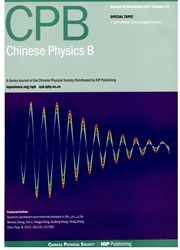

 中文摘要:
中文摘要:
By coupling a train of femtosecond pulses with 100 fs pulse width at a repetition rate of 76 MHz generated by a mode-locked Ti:sapphire laser into the fundamental mode of photonic crystal fibre(PCF) with central holes fabricated through extracting air from the central hole,the broad and ultra-flattened supercontinuum(SC) in the visible wavelengths is generated.When the fundamental mode experiences an anomalous dispersion regime,three phases in the SC generation process are primarily presented.The SC generation(SCG) in the wavelength range from 470 nm to 805 nm does not emerge significant ripples due to a higher pump peak power and the corresponding mode fields at different wavelengths are observed using Bragg gratings.The relative intensity fluctuations of output spectrum in the wavelength ranges of 530 nm to 640 nm and 543 nm to 590 nm are only 0.028 and 0.0071,respectively.
 英文摘要:
英文摘要:
By coupling a train of femtosecond pulses with 100 fs pulse width at a repetition rate of 76 MHz generated by a mode-locked Ti: sapphire laser into the fundamental mode of photonic crystal fibre (PCF) with central holes fabricated through extracting air from the central hole, the broad and ultra-flattened supercontinuum (SC) in the visible wavelengths is generated. When the fundamental mode experiences an anomalous dispersion regime, three phases in the SC generation process are primarily presented. The SC generation (SCG) in the wavelength range from 470 nm to 805 nm does not emerge significant ripples due to a higher pump peak power and the corresponding mode fields at different wavelengths are observed using Bragg gratings. The relative intensity fluctuations of output spectrum in the wavelength ranges of 530 nm to 640 nm and 543 nm to 590 nm are only 0.028 and 0.0071, respectively.
 同期刊论文项目
同期刊论文项目
 同项目期刊论文
同项目期刊论文
 期刊信息
期刊信息
